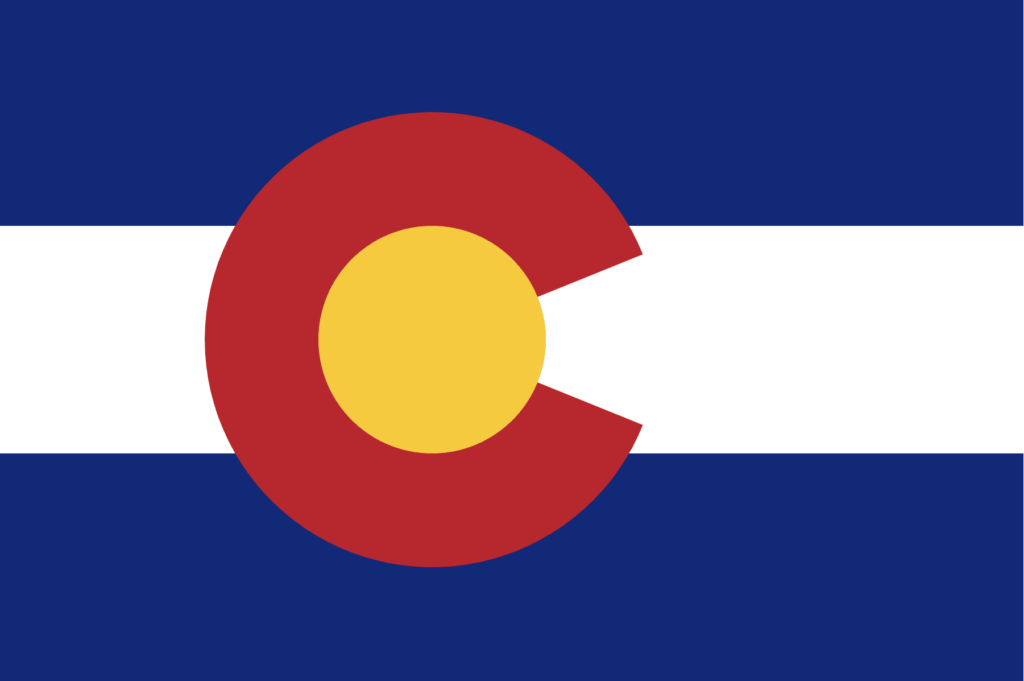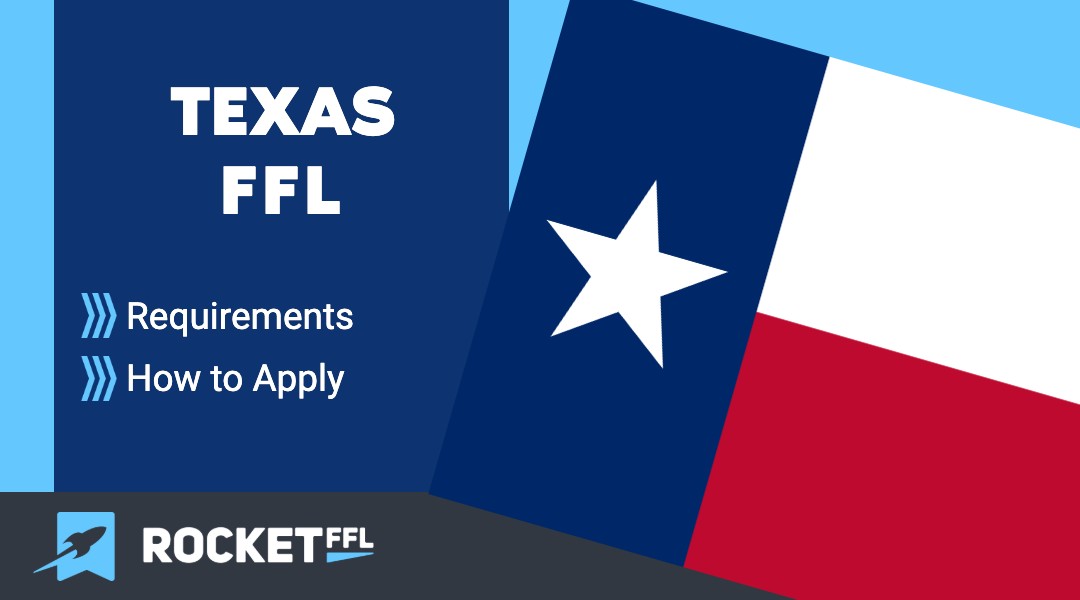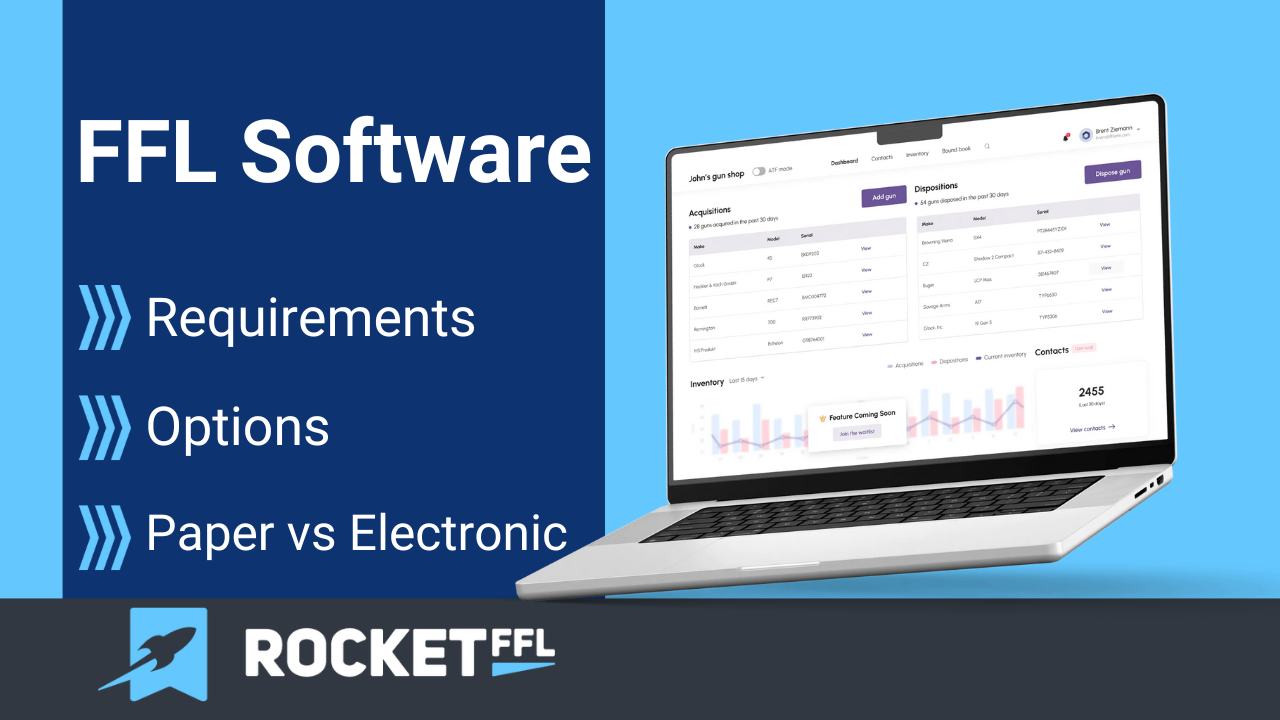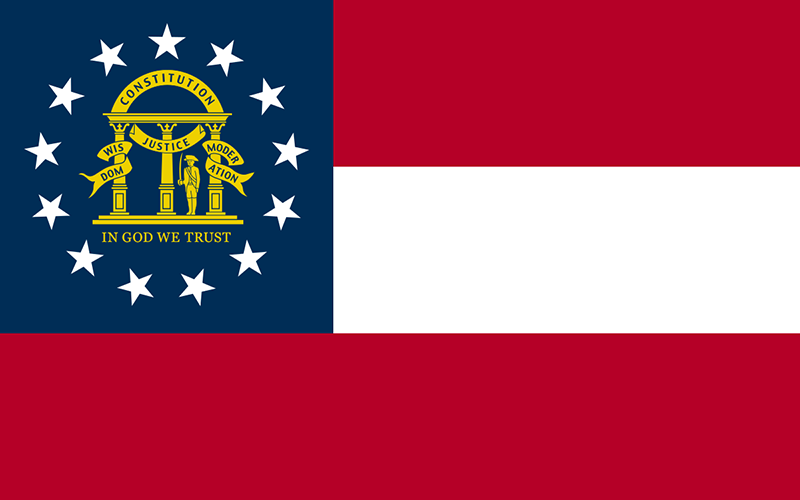If you’re thinking about getting a Federal Firearms License (FFL) in Texas so that you can be a gun manufacturer or firearms dealer (even from your home) in the lone-star state, then you’re in the right place. Most of the requirements for getting your FFL License are federal rules and regs, however, each state also […]

How to Get Your FFL in Colorado: State/Federal Requirements
Obtaining your Federal Firearms License (or FFL) in Colorado permits you to handle the sale and distribution of firearms according to federal law.
At a glance, Colorado has an average amount of gun laws statewide, but FFL dealers in a few counties and cities should be aware of their local restrictions.
Getting your FFL in Colorado is very similar to most states. We at Rocket FFL hope to eliminate all the hassle from the process and guide you step by step.
In this article, we discuss:
- FFL Cost
- Steps to getting your FFL in Colorado
- Federal Requirements for an FFL
- Colorado State Requirements for an FFL
- Colorado Local (City/Town) FFL Requirements
- FAQs and additional resources
FFL Cost in Colorado
How much does an FFL cost? An FFL in Colorado typically costs between $30-$200 for your first 3 years in business.
When you start an FFL application with the Bureau of Alcohol, Tobacco, Firearms, and Explosives (ATF), you choose from several license types.
Each license type varies in price due to the various functions they permit the licensee to enact. This includes selling handguns, incorporating a gunsmithing shop, or processing legal ownership in exchange for transfer fees.
Each of these activities requires a different type of license for which the application fees range in price.
FFL License Cost by Type
| FFL License | Application | Renewal | Years |
|---|---|---|---|
| Type 01 | $200 | $90 | 3 |
| Type 02 | $200 | $90 | 3 |
| Type 03 | $30 | $30 | 3 |
| Type 06 | $30 | $30 | 3 |
| Type 07 | $150 | $150 | 3 |
| Type 08 | $150 | $150 | 3 |
| Type 09 | $3,000 | $3,000 | 3 |
| Type 10 | $3,000 | $3,000 | 3 |
| Type 11 | $3,000 | $3,000 | 3 |
For gun dealers to handle NFA items (such as silencers, short-barrel rifles, machine guns, and other destructive devices regulated by the National Firearms Act), you must pay additional costs in the form of an SOT license registration.
Steps to Getting Your FFL
To get your FFL in Colorado, you need to:
- Ensure you meet the federal and state requirements for an FFL
- Choose your FFL type
- Take an FFL course
- Submit your FFL application forms
Step 1: Ensure You Meet FFL Federal Requirements
First, you need to make sure that you pass all Federal requirements. These are the same for every state in America.
Step 2: Choose Your FFL Type
Second, ensure you apply for the appropriate FFL type. Depending on what you are trying to do with your business, you will need to make sure you choose the license version, which will allow you to lawfully operate your firearms business.
More often than not, you will probably need either a Type 01 license (for most firearms dealers and gunsmiths) or a Type 07 license (for manufacturing). A Type 07 license lets you both manufacture and sell firearms.
To choose what type of FFL best suits your needs, read our article explaining everything.
Some types of firearms and accessories require you to be a SOT (Special Occupational Taxpayer). You may apply as a SOT after you are assigned your FFL number. These requirements are from the National Firearms Act of 1934 (NFA), later updated with Title II of the Gun Control Act.
You’ll need to be a SOT if you plan to sell these NFA items:
- Silencers
- Full-auto machine guns
- Short-barreled rifles (rifles with a barrel shorter than 16″ or an overall length under 26″)
- Short-barreled shotguns (shotguns with a barrel shorter than 18″ or an overall length under 26″)
- Destructive devices (grenades, mines, bombs, etc.)
- Any other weapons (pen guns, specific special handguns, etc.)
The table below describes each FFL License type and which SOT Class you’ll need to apply for after getting your FFL to sell firearms covered under the NFA.
We cover all of the specifics of SOT classes and the NFA in our Get Your FFL Course.
FFL License Types
| FFL License Type | FFL License Purpose | SOT Class |
|---|---|---|
| Type 01 FFL | Dealer/Gunsmith of Firearms | 3 |
| Type 02 FFL | Pawnbroker/Dealer of Firearms | 3 |
| Type 03 FFL | Collector of Firearms | n/a |
| Type 06 FFL | Manufacturer of Ammunition | n/a |
| Type 07 FFL | Manufacturer/Dealer of Firearms and Ammunition | 2 |
| Type 08 FFL | Importer/Dealer of Firearms | 1 |
| Type 09 FFL | Dealer of Destructive Devices | 3 |
| Type 10 FFL | Manufacturer/Dealer of Destructive Devices | 2 |
| Type 11 FFL | Importer/Dealer of Destructive Devices | 1 |
Step 3: Take an FFL Course
To make sure all aspects are covered, it’s advisable to take an FFL course from a qualified instructor.
The logistics of getting your FFL License can be complex. That’s why I did decades of research and worked as an attorney in the firearms industry to help you realize your dream of owning a gun shop or ammo business without any hassle from law enforcement agencies.
The below course will not only cover getting your federal firearms license, but it also covers everything you need to know to get your FFL anywhere in Colorado.
Yes, we’re offering all that for just $49.
I’m a firearms attorney that specializes in ATF compliance. I could make money letting people improperly apply for their FFL and charge my hourly rate to fix it for them later.
But it better serves our communities for firearms industry entrepreneurs to instead learn how to do it correctly the first time.
If you want the most for your time and money, get the FFL Course and SOT Course combo. For an extra $10, learn how to apply to buy and sell silencers and Short Barreled Rifles (SBRs) in addition to standard firearms covered by just your FFL. Simply select that option during checkout.
Step 4: Submit Your FFL Application Forms
After you’re confident you meet all requirements (federal and state), identified the appropriate FFL type for your business, and taken the Rocket FFL course, you are ready to “pull the trigger” and apply for your FFL!
Upon completing all the forms required by the ATF, they will start the process by conducting a thorough background check on all “responsible persons” in the business. A responsible person (RP) is either the sole proprietor, a business partner, or manager in charge of practices and policies.
All background checks are complete when the application paperwork has been verified by a local ATF field office. An industry operations investigator (IOI) interviews you to ensure all information is still correct and that you are abiding by all state and local requirements.
The IOI will make a recommendation to either approve or deny your FFL application after the interview. Assuming you passed, the ATF field office supervisor will forward the approved application to the Federal Firearms Licensing Center (FFLC), and you will be officially granted an FFL!
The ATF website estimates the process takes around 60 days after a completed application is received. But depending on which state you plan to operate in, the ATF may require extra forms and additional steps.
If you took the Rocket FFL course, you’d have every detail and access to all the necessary documents to expedite your Federal Firearms License approval.
Federal Requirements for an FFL
The federal requirements for getting an FFL are the same for every state.
To secure an FFL, you must meet the following requirements:
- Are at least 21 years of age
- Are a US Citizen or legal permanent resident
- Are legally permitted to possess firearms and ammunition (no felony convictions, have not been a psychological patient or controlled substance user, etc.)
- Have a predetermined location for conducting FFL activities (this includes home-based FFLs)
- Have never violated the Gun Control Act (GCA) or related regulations
- Do not make any false statements/claims on your FFL application
Once you satisfy all of these conditions, you may proceed to the state-specific requirements.
Colorado State Requirements for an FFL
Colorado state requirements for an FFL can be broken down into two categories:
- State licensing requirements
- Business registration requirements
Colorado State Licensing Requirements
Fortunately for applicants, Colorado does not require additional state licensing to receive an FFL. This does not exempt you from knowing the state’s individual laws but does cut back on unnecessary time wasted and fees.
FFL holders in Colorado must perform verification through the CBI’s (Colorado Bureau of Investigation’s) Firearms InstaCheck Unit. This replaces the FBI NICS system because each uses the compulsory federal form 4473.
For FFL businesses to process background checks, a special account must be opened and kept in good standing with the CBI.
Colorado Business Registration Requirements
Even if your business is registered in another state (we cover this in our Get Your FFL course), you’ll need to have a Colorado physical address.
To register a business, you should check out the Colorado Business Resource Book. They provide plenty of answers to common questions Colorado entrepreneurs face.
Colorado Local (City/Town) FFL Requirements
Local zoning requirements can be one of the more considerable hurdles when applying for an FFL. You must verify the location you use as a base of operations (even a home-based FFL) allows for a firearms transfer.
Home-based firearms businesses commonly inquire about an FFL and are told they can’t operate in a residential area. But don’t give up yet! Business restrictions in certain regions are frequently misunderstood because if a zoning department hears “FFL,” they may assume you’re going to open a traditional gun store.
However, the foot traffic associated with brick-and-mortar gun shops is usually not the same as what you can expect at a home-based FFL.
We cover these and more, including requirements for specific business hours, in our Get Your FFL course.
Denver Residents! Be aware that the sale of the following items is banned in the city of Denver:
- So-called “Assault weapons,” defined as a rifle that can hold more than 15 rounds of ammo
- Large-capacity magazines (any magazine that can hold more than 15 rounds of ammo)
- “Semiautomatic shotguns with a folding stock or a magazine capacity of more than six rounds”
- Bump stocks (which are also banned under federal law)
Firearms classified as such have been deemed to possess characteristics that allow them to be used in a manner unnecessary for civilian use. You’ll want to check your county for any similarly worded guidelines.
Colorado FFL Summary
Getting your FFL in Colorado can be straightforward with the right help!
As long as you meet the Federal and State requirements, choose the appropriate license type, take our online course, and fill in the proper forms, you’ll be on your way to being the newest owner of a Colorado FFL.
Don’t sink countless hours into trying to get it right on your own.
We can provide you with the confidence to fill out all forms and get through the process with ease. Trust me — knowing that you are running your business safely and within all the confines of both federal and local laws will be a massive load off your mind.
So, if you’re ready, let’s get started!
FAQ for Colorado FFL Licensing
How much does it cost to get an FFL in Colorado?
An FFL in Colorado costs anywhere from $30 to $200 for 3 years. For a full breakdown of the cost of an FFL, check here.
Do I need an FFL in Colorado?
Yes! If you plan to sell, transfer, manufacture, or do anything else for profit involving firearms or accessories, you are legally required to have an active FFL.
Does Colorado require extra licensing for FFLs?
No, there are no additional licensing requirements for FFLs in Colorado.
Do I need to register a business for an FFL in Colorado?
Yes, if you are forming a business for your FFL, it must be registered in Colorado.
Can I get an FFL to save money on guns?
No, you should not get an FFL just to save money on guns. One of the main requirements for getting your FFL is “business intent,” meaning you intend to operate a firearms-related business.
However, you may wait to start your business until after you get your FFL number.
Extra Resources For Getting a Colorado FFL
US Code § 923: Code § 923 covers federal regulations for the import, manufacture, and dealing of firearms and ammunition. This is the federal law that requires those operating firearms businesses to get an FFL.
US CFR § 478.47 – Issuance of license.: This code explains how a Federal Firearms License is issued, including who must assign the license number. It requires the ATF (Bureau of Alcohol, Tobacco, Firearms, and Explosives) to qualify applicants based on a predetermined list of requirements and to issue Federal Firearms Licenses.
If a correctly submitted FFL application has been submitted on ATF Form 7, the Chief of the Federal Firearms Licensing Center (a department at the ATF) must issue the license and assign a serial number to the licensee.
Gun Control Act (GCA): The GCA of 1968 establishes stricter laws on the firearms industry than were already present in the NFA. New regulations regarding firearms offenses, firearms/ammunition sales to “prohibited persons,” and federal jurisdiction for “destructive devices” (bombs, grenades, mines, etc.) were created with the GCA.
Starting a Business in Colorado: Need help finding out where to start with your new business? Check out this site from the Colorado Business Development Foundation and the Colorado Small Business Development Center Network.
Colorado State Patrol Gun Law Guide: Firearms dealers in Colorado can read this .gov website to gain a basic understanding of the current gun laws in place.
FFL Types: Use this guide to make sure that you choose the right type of Federal Firearms License for what you want to do.
Home-Based FFL: Don’t want to pay for a storefront but wish to operate as an FFL holder from your home? We explain how to do it from start to finish.
Recommended Posts



